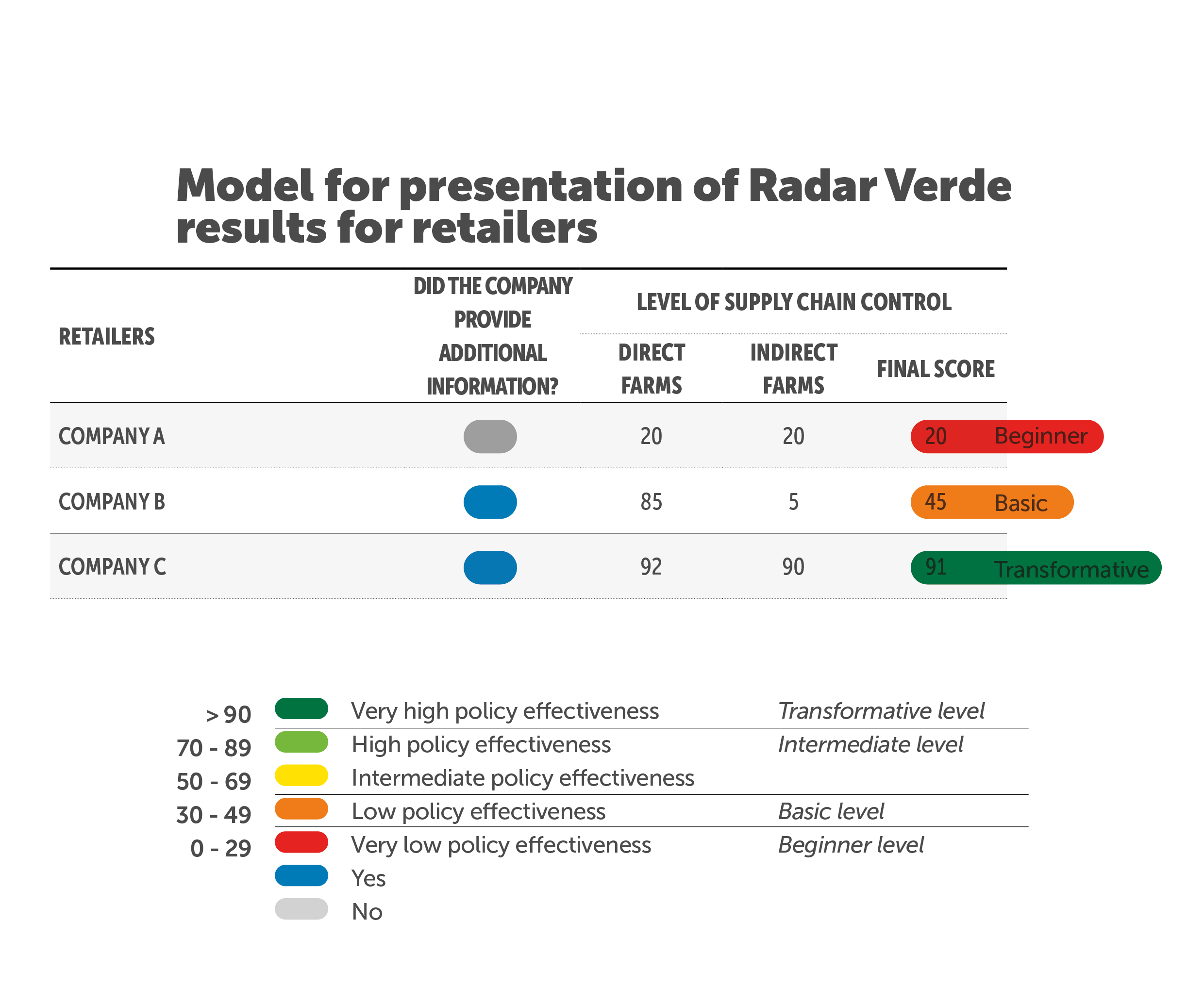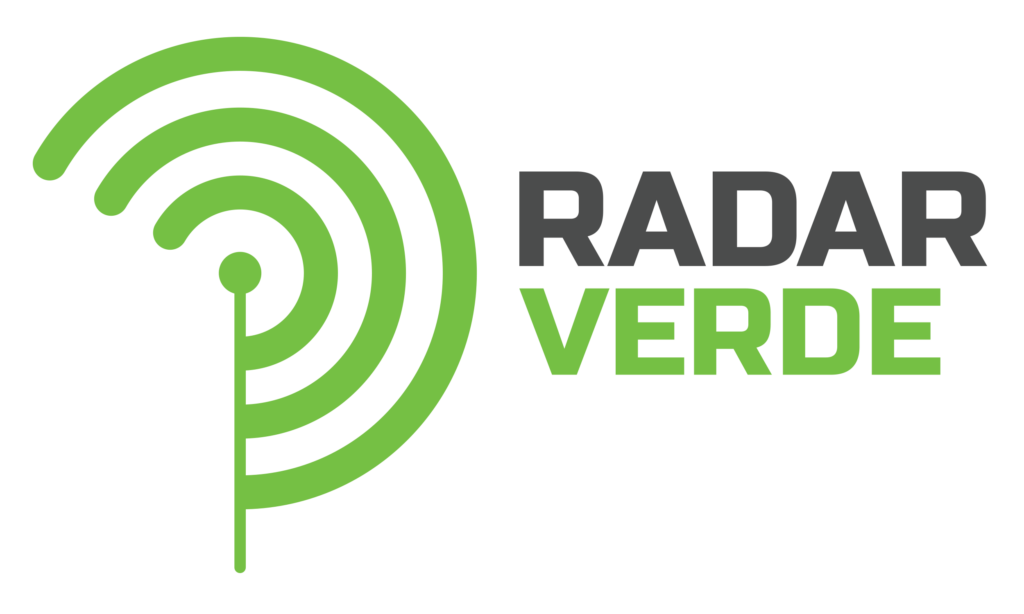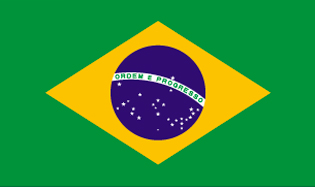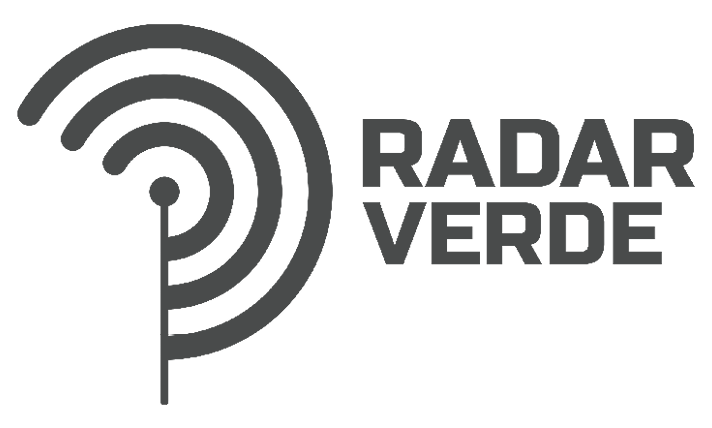Meatpackers
The Radar Verde results for each meatpacker are presented in a list containing the following columns (Table 5):
- Company name in alphabetical order.
- Level of Exposure to Deforestation Risk (hectares): for companies with multiple slaughterhouses in the region, the Level corresponds to the sum of the areas under deforestation risk within the supply regions of all plants.
- Level of Supply Chain Control for Direct Farms: evaluates the company’s commitment to controlling the last farm where the cattle were kept before slaughter.
- Level of Supply Chain Control for indirect farms: evaluates the company’s commitment to controlling the farms through which the cattle pass from birth until reaching the final fattening farm.
- Level of Commitment Against Deforestation (final score): this is the average score that assesses the level of control throughout the supply chain, involving both direct and indirect suppliers, while also considering the type or level of ambition of the company’s anti-deforestation commitment — that is, whether it allows legal deforestation or is against all types of deforestation (legal and illegal). Each company’s commitment level class is presented by multiplying the control score by the ambition level of the policy. The control score is multiplied by 1.0 for companies that do not purchase from farms with legal deforestation from 2023 onward, and by 0.8 for companies whose commitment is limited to illegal deforestation.
Radar Verde will publish the results obtained either through the company’s questionnaire responses or through verification of public data, regardless of the company’s consent.
Table 5. Model for presentation of Radar Verde results for meatpackers
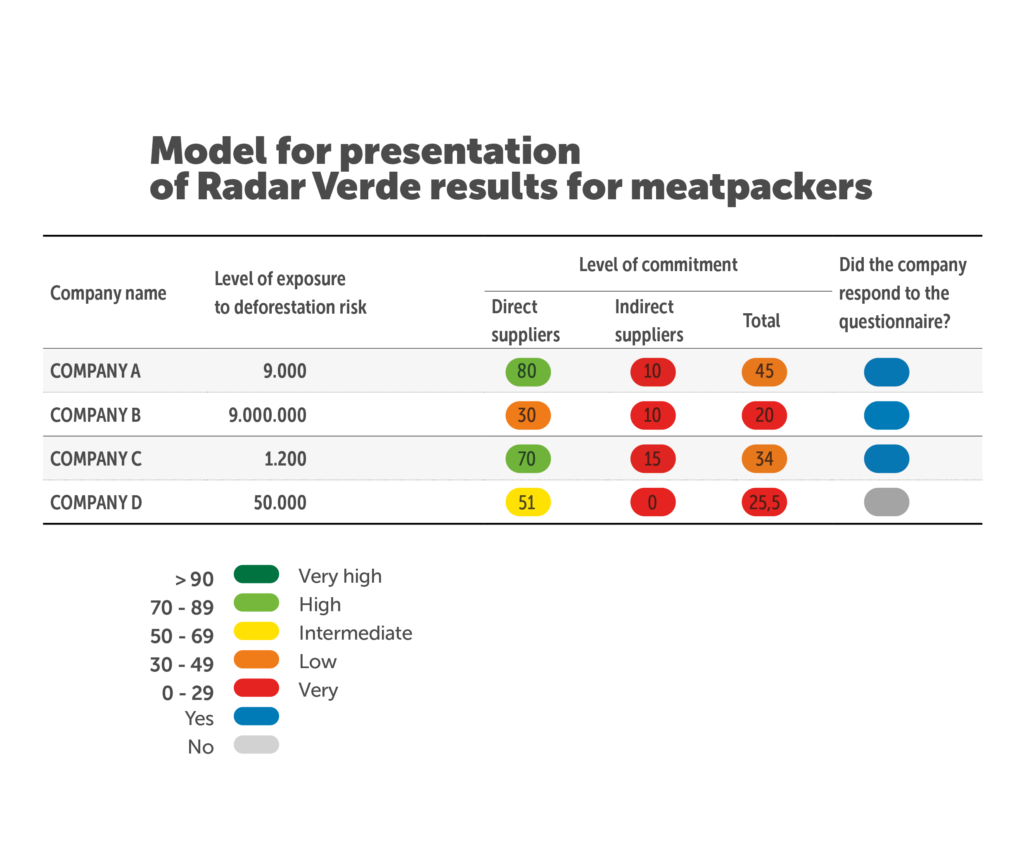
Retailers
The Radar Verde results for each retail company are presented in a list containing the following columns (Table 6):
- Company name: the first companies are ranked according to their scores; the remaining ones follow the revenue ranking established by ABRAS.
- Company shares additional information (yes or no).
- Level of Supply Chain Control for direct farms: score related to the control of direct farms — numerical score for the company’s Level of Supply Chain Control based on the evaluation of the company’s official communication channels, public data, and responses to the questionnaires sent.
- Level of Supply Chain Control for indirect farms: score related to the control of indirect farms — numerical score for the company’s Level of Supply Chain Control based on the evaluation of the company’s official communication channels, public data, and responses to the questionnaires sent.
- Final Level of Supply Chain Control: overall company score, represented both by a color class and a numerical value.
Radar Verde will publish the results obtained through the company’s questionnaire responses, as well as through verification of public data available on the companies’ official websites, regardless of the companies’ consent. The Radar Verde scoring system evaluates companies’ anti-deforestation commitments, considering two key aspects: the anti-deforestation policy adopted and its implementation. The maximum possible score is 100 points.
In the evaluation to determine the Level of Supply Chain Control, the Policy component accounts for 20% and Implementation for 80% of the final score. In the results, the higher the final score, the greater the company’s effectiveness in removing deforestation from its supply chain. Depending on the efficacy of the anti-deforestation policy implemented by each company, they may fall into different levels of impact in relation to the real capacity of that policy to generate change and prevent deforestation in their supply chains:
Transformative level: effectiveness above 90 points — indicates that the policy generates structural changes, redefines paradigms, and produces lasting effects.
Intermediate level: effectiveness between 50 and 89 points — indicates that the policy is successful but still requires adjustments to achieve maximum impact.
Basic level: effectiveness between 30 and 49 points — indicates that the company’s policy is functionally implemented but delivers modest results with limited scope.
Initial level: effectiveness between 0 and 29 points — indicates that the company’s policy is in a testing phase, with significant shortcomings or lack of structuring.
Radar Verde will publish the results obtained through the company’s questionnaire responses or through the verification of public data, regardless of the company’s consent.
See below the illustration of the presentation of results in Table 6.
Table 6. Model for presentation of Radar Verde results for retailers
